pytest五:fixture_autouse=True
2024-10-14 16:57:45
平常写自动化用例会写一些前置的 fixture 操作,用例需要用到就直接传该函数的参数名称就行了。当用例很多的时候,每次都传返个参数,会比较麻烦。
fixture 里面有个参数 autouse,默讣是 Fasle 没开启的,可以设置为True 开启自动使用 fixture 功能,返样用例就丌用每次都去传参了
调用 fixture 三种方法
1.函数或类里面方法直接传 fixture 的函数参数名称
2.使用装饰器@pytest.mark.usefixtures()修饰
3.autouse=True 自动使用
方法一:先定义 start 功能,用例全部传 start 参数,调用该功能
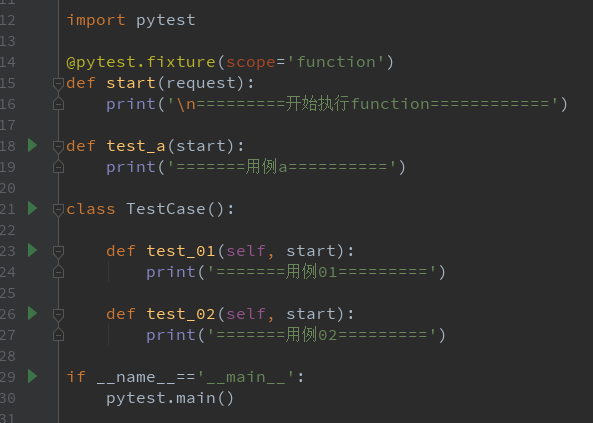
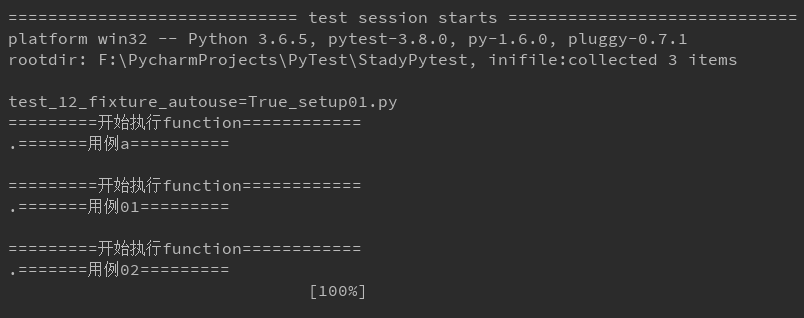 import pytest
import pytest
@pytest.fixture(scope='function')
def start(request):
print('\n=========开始执行function============') def test_a(start):
print('=======用例a==========') class TestCase(): def test_01(self, start):
print('=======用例01=========') def test_02(self, start):
print('=======用例02=========') if __name__=='__main__':
pytest.main() 方法二:使用装饰器@pytest.mark.usefixtures()修饰需要运行的用例
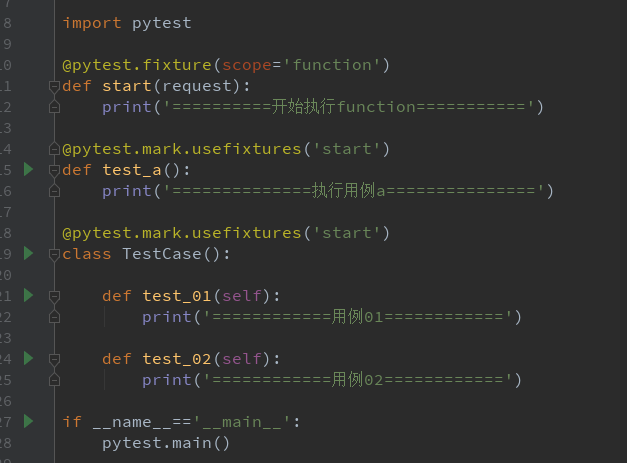

import pytest @pytest.fixture(scope='function')
def start(request):
print('==========开始执行function===========') @pytest.mark.usefixtures('start')
def test_a():
print('==============执行用例a===============') @pytest.mark.usefixtures('start')
class TestCase(): def test_01(self):
print('============用例01============') def test_02(self):
print('============用例02============') if __name__=='__main__':
pytest.main()
方法三:autouse 设置为 True,自动调用 fixture 功能
1.start 设置 scope 为 module 级别,在当前.py 用例模块只执行一次,autouse=True 自动使用
2.open_home 设置 scope 为 function 级别,每个用例前都调用一次,自动使用

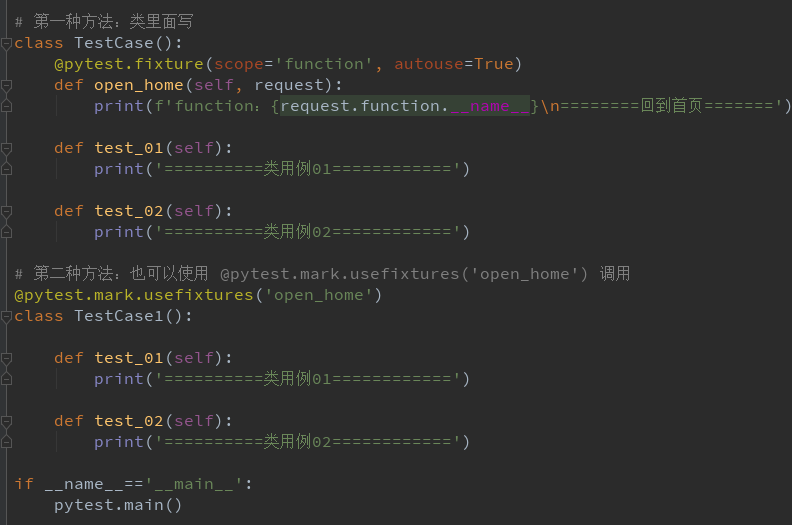
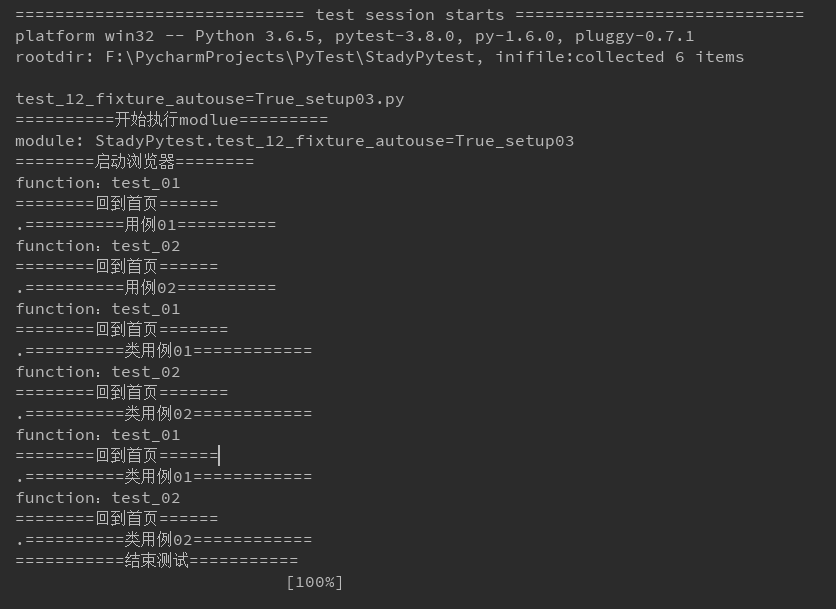
import time
import pytest @pytest.fixture(scope='module', autouse=True)
def start(request):
print('\n==========开始执行modlue=========')
print(f'module: {request.module.__name__}')
print('========启动浏览器========')
yield
print('===========结束测试===========') @pytest.fixture(scope='function', autouse=True)
def open_home(request):
print(f'function:{request.function.__name__}\n========回到首页======') def test_01():
print('==========用例01==========') def test_02():
print('==========用例02==========') # 第一种方法:类里面写
class TestCase():
@pytest.fixture(scope='function', autouse=True)
def open_home(self, request):
print(f'function:{request.function.__name__}\n========回到首页=======') def test_01(self):
print('==========类用例01============') def test_02(self):
print('==========类用例02============') # 第二种方法:也可以使用 @pytest.mark.usefixtures('open_home') 调用
@pytest.mark.usefixtures('open_home')
class TestCase1(): def test_01(self):
print('==========类用例01============') def test_02(self):
print('==========类用例02============') if __name__=='__main__':
pytest.main()
最新文章
- 修复Telerik reporting 在网页中使用时的样式
- UITextView限制字数与行数
- 【python cookbook】【数据结构与算法】11.对切片命名
- LARGE_INTEGER
- E - 娜娜梦游仙境系列——莫名其妙的插曲
- 文件操作 - NSFileManager
- Hibernate自定查询返回list<?>
- 浅谈机器人控制与仿真设计----RDS和ROS
- Filter的介绍及使用
- 【python练习题】程序7
- html超文本标记语言
- Centos之命令搜索命令whereis与which
- Linux定时检测内存,若使用率超过指标,重启Tomcat并清空内存
- VS2013 连接 MySQL
- ConcurrentLinkedQueue 模拟火车售票过程
- HasMany() = (1..*) HasOptional() = (1..0,1) HasRequired() = (1..1)
- HDU - 6311 Cover (欧拉路径)
- C#写的一个视频转换解码器
- PHPExcel读写封装
- 【JavaScript 封装库】BETA 2.0 测试版发布!